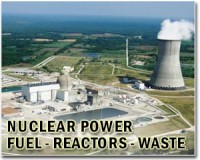 |
Hiroshima, Japan (AFP) Nov 12, 2010 The US atomic bombs that killed and wounded half a million people in Japan 65 years ago continue to haunt generations of families who live in fear of inheriting radiation-damaged genes. Katsuhiro Hirano is among hundreds of thousands of descendants from the "hibakusha" or survivors of the nuclear attacks on Hiroshima and Nagasaki that killed more than 200,000 people instantly or in the radioactive aftermath. "Everyone who is second generation 'hibakusha' has the same fear -- that we may be struck by cancer at anytime," said Hirano, whose late mother barely survived the 1945 bomb in Hiroshima in the final days of World War II. Many hibakusha have since suffered diseases such as leukemia and cancer, and despite a lack of conclusive evidence showing these illnesses being passed down to new generations, families live in fear of the worst. "Some experts say there is no effect on our second generations, but I don't believe that," said Hirano, whose mother suffered two miscarriages which he believes were a result of her exposure to radiation from the attack. Around 240,000 people are officially recognised as hibakusha and are granted free medical treatment, but many more in the two cities suffering from illnesses they say are related to the attacks are seeking the recognition. "The fear is of the unknown, as radiation is invisible, you cannot sense it," 52-year-old Hirano, a school teacher who is also secretary-general of the Japan second-generation atomic bomb sufferers' association, told AFP. The health and welfare ministry has no plans to offer free cancer screening to the second generation, citing a lack of evidence linking older family members' radiation exposure and the emergence of diseases in their children. Hiroshima is back in the spotlight this week as Nobel Peace laureates gather there to call for the end of nuclear weapons in the city obliterated in the world's first ever nuclear attack. Tibetan spiritual leader the Dalai Lama is among the guest speakers. US President Barack Obama, who was awarded the 2009 Peace Prize in part for his efforts to pursue nuclear disarmament, is in Seoul for the G20 summit before attending a meeting of Pacific-rim leaders in Yokohama at the weekend. An estimated 140,000 people died instantly in Hiroshima or succumbed to burns and radiation sickness soon after the blast, and over 70,000 perished as a result of the Nagasaki attack three days later. Kazue Sato, an 82-year-old survivor, still worries if her son or grandchildren may suffer cancer or leukemia as the result of their potential inheritance of abnormal genes. "I felt relieved when I saw my son born with no physical defects, but I am constantly worried that symptoms will develop in the future," said Sato, who lives in a nursing home for atomic bombing sufferers in Hiroshima. The Radiation Effects Research Foundation, run by both Japan and the United States, will launch a clinical survey later this month targetting some 12,000 children of atomic bomb survivors in the two cities. "We have decided to begin the survey as the second generation reaches the age where they are more susceptible to such diseases," said foundation director Takanobu Teramoto. The foundation will continue the survey permanently. While welcoming the upcoming medical check-up, the children of the hibakusha are calling on the government to expand medical support for them, including free cancer screening tests which are otherwise costly. "I would like them to begin cancer screening for us as quickly as possible as we are getting older now," said Nobuhito Hirano, another second generation "hibakusha" in Nagasaki. "Our fear will never be erased."
Share This Article With Planet Earth
Related Links Nuclear Power News - Nuclear Science, Nuclear Technology Powering The World in the 21st Century at Energy-Daily.com
 Nuclear deal between Russia, Australia goes into force
Nuclear deal between Russia, Australia goes into forceSeoul (AFP) Nov 11, 2010 A nuclear cooperation agreement between Russia and Australia went into force Thursday after their two leaders exchanged notes to ratify the deal. Under the agreement Australia will sell uranium to Russia, against the advice of an Australian parliamentary committee. Legislators had called for the deal to be blocked unless Russia met a number of conditions, including speeding up reforms to ... read more |
|
| The content herein, unless otherwise known to be public domain, are Copyright 1995-2010 - SpaceDaily. AFP and UPI Wire Stories are copyright Agence France-Presse and United Press International. ESA Portal Reports are copyright European Space Agency. All NASA sourced material is public domain. Additional copyrights may apply in whole or part to other bona fide parties. Advertising does not imply endorsement,agreement or approval of any opinions, statements or information provided by SpaceDaily on any Web page published or hosted by SpaceDaily. Privacy Statement |